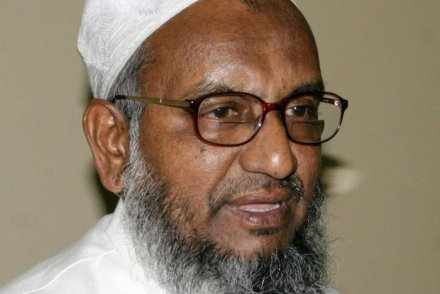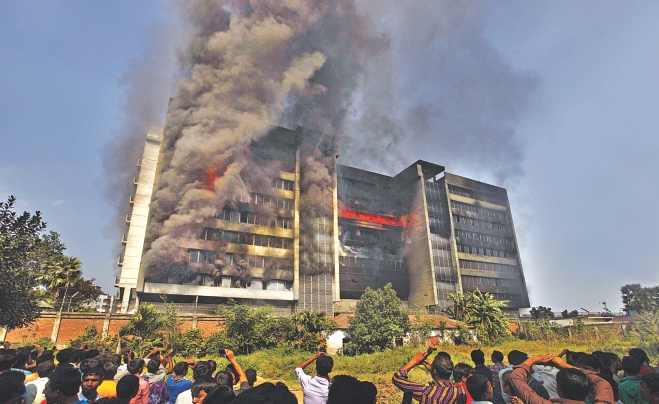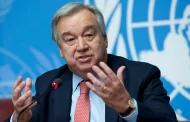Bangladesh has executed the Islamist leader Abdul Kader Mullah, who was convicted of atrocities committed during the 1971 war of independence with Pakistan. He is the first person convicted by Bangladesh’s International Crimes Tribunal (ICT) to be executed.
The ICT was set up in 2010 to investigate abuses committed during the 1971 conflict. Mullah was a senior leader of the Jamaat-e-Islami party. At his trial earlier this year, he was described by prosecutors as the “Butcher of Mirpur”, a suburb of Dhaka where he is alleged to have carried out his crimes. These included the massacre of unarmed civilians and the killing of intellectuals who supported independence from Pakistan.
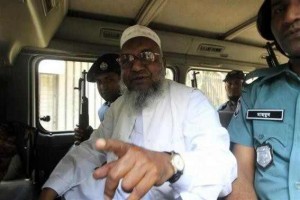
Bangladeshs-Jamaat-e-Islami-leader-Abdul-Quader-Mullah-gestures-as-he-talks-from-a-police-van-after-a-war-crimes-tribunal-sentenced-him-to-life-imprisonment-in-Dhaka
There was a lot of drama in Dhaka before the execution of Abdul Kader Mullah. His family members met him for a final time late on Thursday. It appeared the government rushed through the execution after days of legal wrangling. The execution is likely to trigger further tensions in Bangladesh. Mr Mullah’s party said the death sentence was politically motivated and there would be dire consequences if it went ahead.
Bangladesh’s major Western partners will view the execution with concern. Supporters of the trial would say this is a historic moment as it came just days before Bangladesh’s victory day on 16 December. But many are concerned that this could polarise the country further. Mullah always denied the charges. Four other leading figures in Jamaat-e-Islami have also been convicted by the ICT and face the death penalty.
Celebrations
The execution of Abdul Kader Mullah took place at Dhaka Central Jail at 22:01 local time (16:01 GMT) on Thursday evening, officials announced. His family were allowed a final meeting with the 65-year-old and found him “calm”.
“He told us that he is proud to be a martyr for the cause of the Islamic movement in the country,” his son, Hasan Jamil, told the AFP after the meeting. Hundreds of people gathered in central Dhaka to celebrate the news of his death. But Jamaat-e-Islami – which has warned it will avenge his death – called for a general strike on Sunday.
Security has been tightened in Dhaka and around the country amid fears the execution is likely to inflame tensions. At least three people are reported to have died on Thursday in sporadic clashes between Jamaat-e-Islami supporters and security forces. Abdul Kader Mullah, convicted of war crimes, was hanged in a prison in the capital Dhaka.
Mullah was granted a dramatic stay of execution before he was due to be hanged.
The court was adjourned before the hearing finally rejected his appeal against the death penalty.Speaking on condition of anonymity to Associated Press, an intelligence official confirmed Mullah’s hanging as well as several TV stations who reported the execution. Mollah is the first opposition member executed after Bangladeshi Prime Minister Sheikh Hasina started trying people suspected of war crimes in 2010.
Most of the defendants in Hasina’s war crime trials are opposition members and Mollah’s Jamaat-e-Islami party stated that the execution was politically motivated. They warned of “dire consequences” if Mollah were to be executed.The war crimes in question involve Bangladesh’s 1971 independence war against Pakistan.
The government accuses members of the Pakistani army and collaborators of killing three million people during the independence war. But the five-member bench of the Appellate Division headed by Chief Justice Md Muzammel Hossain, dismissed his petition eventually, removing the final barrier to his execution.
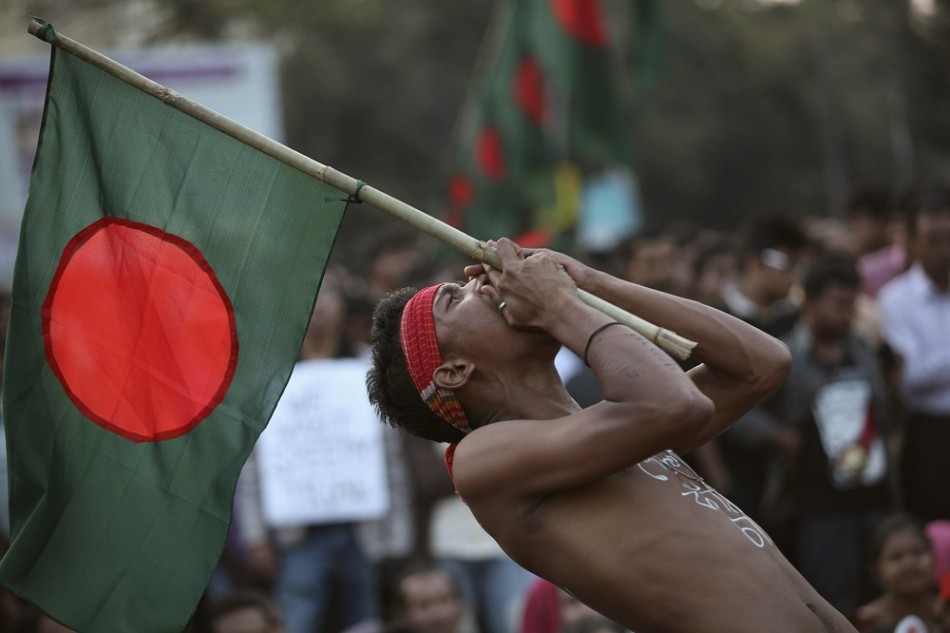
Bangladeshis had clamoured in the streets for months and forced the government to make amendments to a law and thereby facilitate the award of the death penalty to Mullah.
In February, a Bangladeshi war crimes court found Mullah guilty of crimes against humanity during the country’s war of independence from Pakistan. He had been accused of orchestrating the abduction and killing of more than 200 Bengali intellectuals in the fading days of the war. Large-scale massacres of pro-independence activists in the Mirpur area of Dhaka had given Mullah the moniker of “koshai” or butcher of Mirpur.
Jamaat-e-Islami is the largest Islamist organisation in Bangladesh and was banned from contesting elections by the Bangladeshi Supreme Court in August.
eNewsDesk @ INTDESK @EIC







